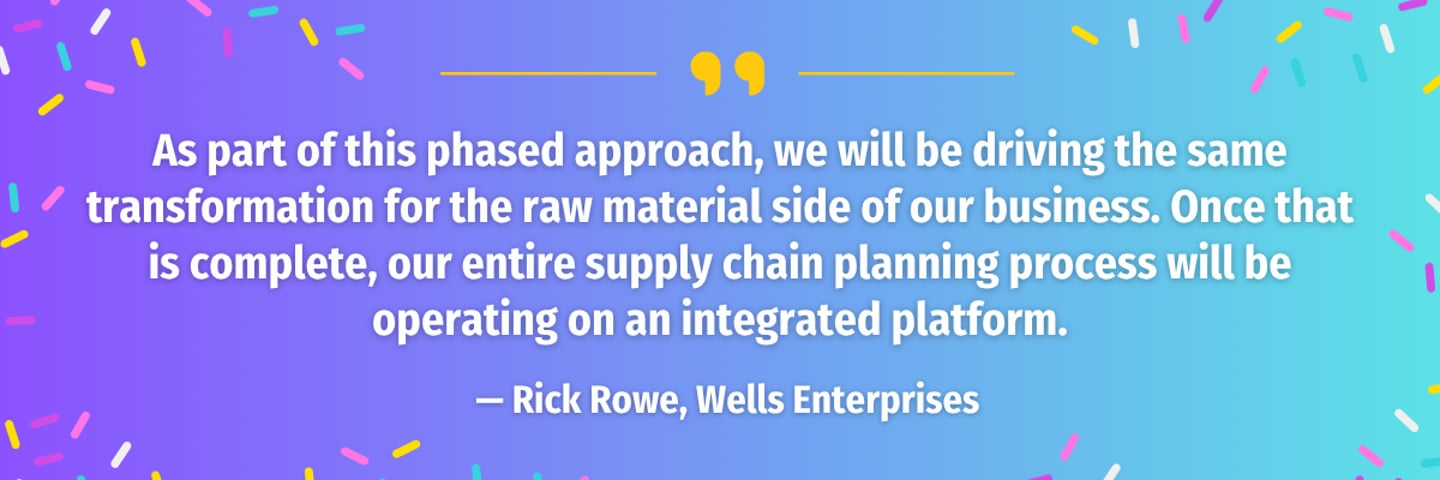Wells Enterprises Scales Supply Chain Modernization to Meet Growing Demand
Wells Enterprises, which manufactures the Blue Bunny and Halo Top ice cream brands, has been scaling its operations, producing over 200 million gallons of ice cream per year, distributed across all 50 states.
That growth required a new supply chain approach that could tackle challenges around network complexity, including aligning demand with supply, optimizing production schedules and maintaining inventory accuracy, Rick Rowe, director of production planning, tells CGT.
Also: Wells and Ferrara partnered to bring Gen-Z Trolli fans into a new category
As a result, the company partnered with Arkieva to help create an end-to-end platform that provided the flexibility for assigning production lines, creating and adjusting ramp-up curves for new products, and balancing workloads.
Tackling Growing Pains
As Wells increased its product range, introduced new production lines and distribution centers to its network, and expanded to new geographies, its supply chain became too complex for its existing tools.
“We wanted to bring all elements of our supply chain into one cohesive software solution that could scale alongside the business,” says Rowe.
This includes capabilities related to demand forecasting, inventory management, supply and production planning, plant scheduling, and truckload modeling.
The streamlined approach has enabled Wells to access every part of its supply chain from a single, central location.
Also: Danone & Wells harness consumer data to uncover trends and optimize promotions
It has thus far enhanced visibility within production capacity, allowing the company to view up to 16 weeks in advance, significantly improving decision making and production efficiency within the organization, Rowe reports.
Through the investment, Wells has also been able to use network-wide insights to identify profit optimization opportunities, such as the most cost-effective plant locations for specific production runs.
The implementation has also encouraged increased collaboration within supply chain teams, says Rowe.
Getting Systems Ready
The company was especially focused on a partnership that could get a new system up and running quickly and could easily be integrated into existing ERP systems.
“Success in the ice cream business is dependent on the ability to innovate,” says Rowe. “The new products and new lines became live as soon as we set up our master data. Very little preparation was needed to start the planning process.”
They've taken phased approach, with teams checking in on a daily and weekly basis as the business continues to improve its processes. The onboarding has included training on the system’s capabilities and ongoing support as needed.
“As part of this phased approach, we will be driving the same transformation for the raw material side of our business,” notes Rowe. “Once that process is complete, our entire supply chain planning process will be operating on an integrated platform, making it simpler than ever to collaborate and make informed decisions regarding inventory, raw material supply and production planning.”







